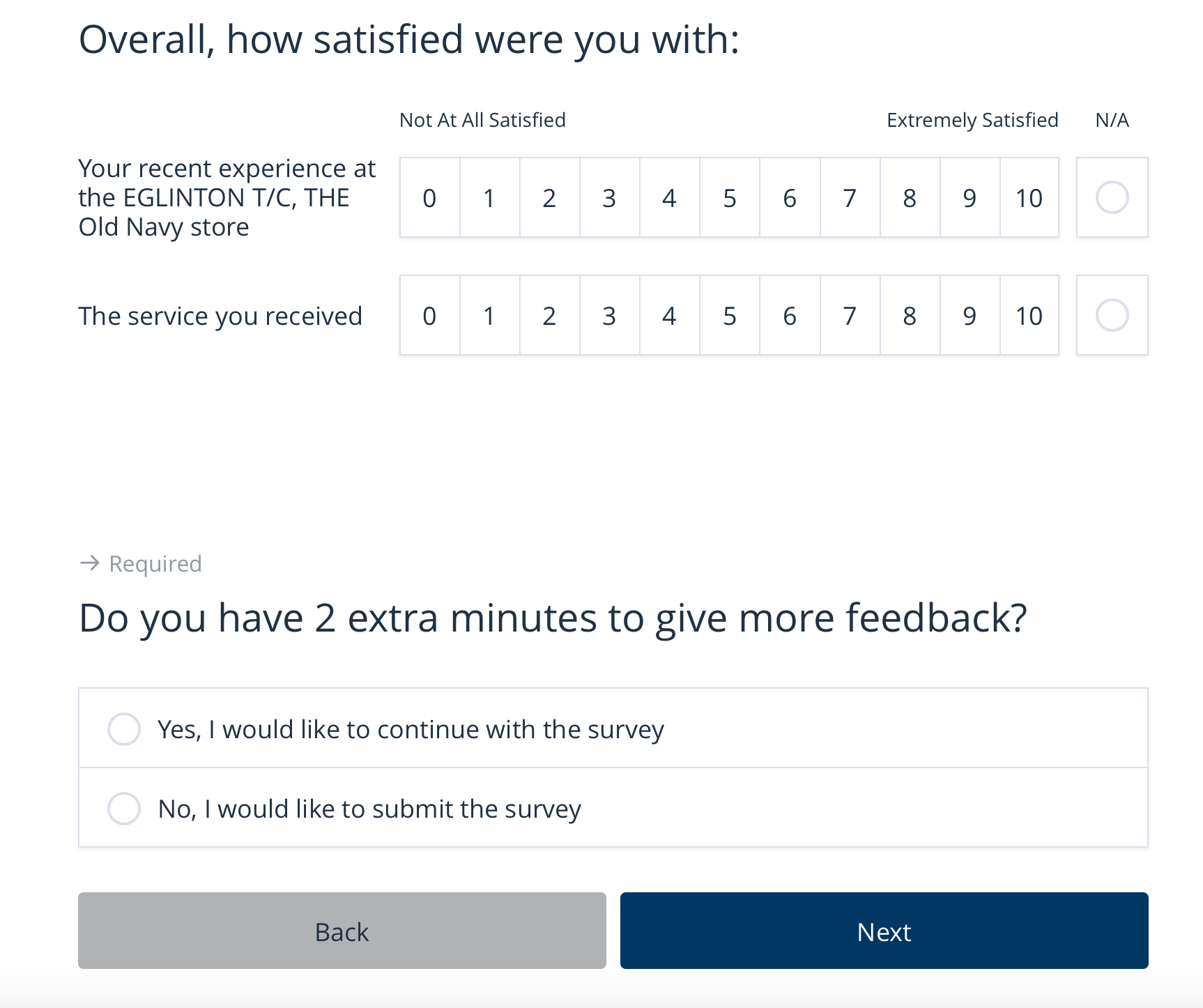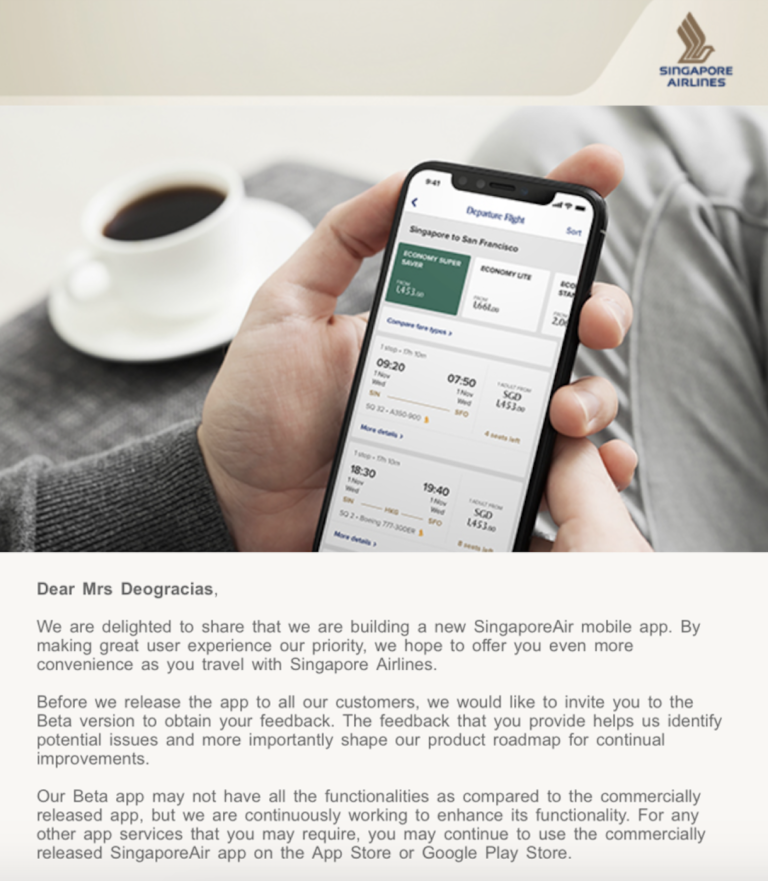3 Questions to Ask to Improve Customer Experience

Note: Updated March 2021 to include two more questions!
What you want to know from your customers and what they need to tell you are two different things.
While it’s important to find answers to the questions your business might have, answers to questions you never asked are -arguably – more important.
Customer experience is about the connection your brand makes with its customers – potential or existing. Connection is built with communication, not only what you tell customers about you but what they tell you in return, either voluntarily or otherwise.
Customer feedback is the backbone of customer experience. It can take the form of surveys, product reviews, comments, messages, or polls on social media. Value them, as they will help you improve, grow, and keep loyal customers.
The Customer Experience Advantage
If you want to stay ahead of the competition, you should never stop listening to customer feedback, whether it is positive or negative, prompted or unprompted.
Startquestion
According to My Feelback, a company that specializes in collecting customer insights, companies that regularly solicit and act on feedback are better positioned to uncover flaws in their business.
This relates to a technical problem with the website, prices that are too high, or some other issue that, otherwise, would have remained off the business’s radar.
Getting useful customer insights is not about the tool used to collect them; it is in the asking.
The key is to ask the questions that will get you the answers you need, answers which should enable you to optimize your online business to deliver an increased customer experience.
My Feelback
So, how do you ask the right question? It all comes down to your need and where your customer is in the purchase life cycle.
From customer satisfaction, retention, referral, or likelihood of repurchase, the answers and response rates will depend on the questions you ask.
Customer Satisfaction Questions
Measuring customer satisfaction for product development/improvement is also a good indicator of customer loyalty and whether they will recommend you.
This can take many forms, but the simplest way is through a survey delivered via onsite pop-ups, mobile, or email.
The templated approach for customer satisfaction questions should usually be HOW. For example:
- How satisfied are you? This question can either be generic, using a qualifier like “overall,” or can be more specific, targeting a particular service or aspect of the product.
- How are we doing? Generally, this question is service-oriented. While brands can ask this in a general context, the value is gained when it’s more service-specific.
- How was your trip? For anything related to travel and transportation this can be used to start a customer feedback questionnaire or invite customers to participate in a survey. Going further, it could be more targeted and refer to taxi cabs, ride-sharing services, or transportation networks.
- How would you rate your experience? With this question, remember that experience is relative to service, and quality is often interchanged with impression. The key here is to be specific unless the intention is a general inquiry.

One example is how Old Navy transitions from a general question to a detailed survey by first asking the customers if they want to proceed.
This approach is considerate of the customer’s time, which is key when it comes to encouraging participation. According to Survey Monkey, consumers’ response rates go down when answering surveys becomes a burden.
Customer Recommendation Questions
Questions that are indicators of customer churn, loyalty, and referral are ones that ask customers how likely they are to recommend you.
These types of questions follow a pretty standard approach:
- Would you recommend XXX to family, a friend, or colleague?
- On a scale of 1 to 10, with 10 being the highest, how likely are you to recommend…
- Agree or disagree, I would recommend this…
Customer Profile Questions
Imagine creating a bespoke suit for a wealthy client. As a seasoned designer, you know how to make the perfect suit – the only problem is you have no idea what your client’s measurements are.
You can’t tailor the perfect suit without having a firm grasp on who your client is.
So, too, is marketing. You can’t tailor the perfect customer experience without knowing exactly who your customers are.
If you want to improve customer experience, it’s worthwhile asking the right questions to ensure you know exactly who you’re serving, what they’re looking for, and why they came to you in the first place.
Here are a few questions to get started on building your customer profile:
- When gathering information, do you go to a newspaper, television, paper books/magazines, or online?
- What is your job title?
- Which three features are most important to you? Customization, design, ease of use, low price, popularity, functionality, and speed.
- What challenge or problem can we help you solve?

When you gather the right measurements by asking the right customer profile questions, you will have a clear understanding of who you are serving.
Once you know exactly who your client is, tailoring the perfect customer experience and delivering the suit to fit their Sunday Best will become second nature.
Online Experience Questions
More and more companies have moved to conducting business over the Internet.
In fact, many retail brands have abandoned the brick-and-mortar strategy entirely, building out a preference for hosting their entire business online.
Without having specific touch points in person with clients, the importance of mapping out and understanding online customer experience is only increasing.
The marketing world has moved far past the need to have an online presence – just having a website is not nearly enough to compete in 2021.
Online customer experience might be the first place your customers interact with you and your brand, so it is crucial their website or app experience is custom-fitted, functional, and meets their needs.
You can use your current website or app as a vehicle to survey customers now to find out how to improve your online functionality in the future.
Some questions you might consider asking are:
- How easy is our website to navigate?
- From our homepage, do you understand what we do?
- Were you unable to find what you were looking for?
- How easy did you find the checkout process?
- How helpful was this article/blog post?
Customer Feedback Questions
Collecting customer feedback shows you value their opinions. By asking your clients for feedback, you communicate that their opinion is important to you. You involve them in shaping your business so they feel more attached to your company. Listening to their voice helps you create stronger relations with them.
Walker Customer Experience Consulting
Customer insights collected through a survey, feedback form, or a review provided on the websites should ultimately serve as a resource for product assessment, improvement, and further development.
Giving customers a free space to inform on why they gave certain ratings to a particular question gives you a better understanding of their response(s).
Additionally, by enabling customers to share their own thoughts, the engagement process becomes a more personal experience.
Of all the ways to increase customer satisfaction and maximize customer retention, personalization is one of the most powerful strategies. Customers are more likely to be comfortable with businesses that know them and address their needs.
Survey Monkey
Take Singapore Airlines, for example, when they looked to crowdsource ideas prior to the launch of their mobile app. To gather feedback, they reached out to members of Krisflyer, Singapore Airlines’ mileage rewards program, by email.
This ensured customers felt they were valuable partners, and any feedback they offered could be included in the product development timeline.

When requesting feedback via a web form, consider the following tip from Survey Monkey:
Be clear.
Don’t make customers second guess what you mean when you ask if they are happy with the service, the product, their stay, etc. Happiness means different things to everyone.
Instead, ask them to rate the service, if the product met their expectations, and if they’ll return and stay at your hotel again in the future.
Be specific.
Don’t risk being rated poorly overall when it was the room service sucked. General questions tend to get lump-sum answers.
Instead, ask about the room service in particular (or any specific service), as opposed to asking how your service was overall. That’s not the sentiment you’re interested in.
Ask numerous questions.
Survey Monkey recommends, “…asking multiple, specific questions instead of one general question will not only make your questions easier to answer for your respondents, but it will also make your data easier to analyze and act on.”
To better understand consumer mindset, gaining insights from their behavior and their preferences should be the goal of any customer engagement program.
It’s then up to you to use this intel to identify triggers, barriers, and opportunities, which in turn will improve your brand’s customer experience.
Forge Unbreakable Bonds, Drive Growth
BONDAi is a one-of-a-kind solution combining technology and “the human touch” to build exceptional relationships with clients, prospects, partners, and employees.
Discover the BONDAi Difference Today.